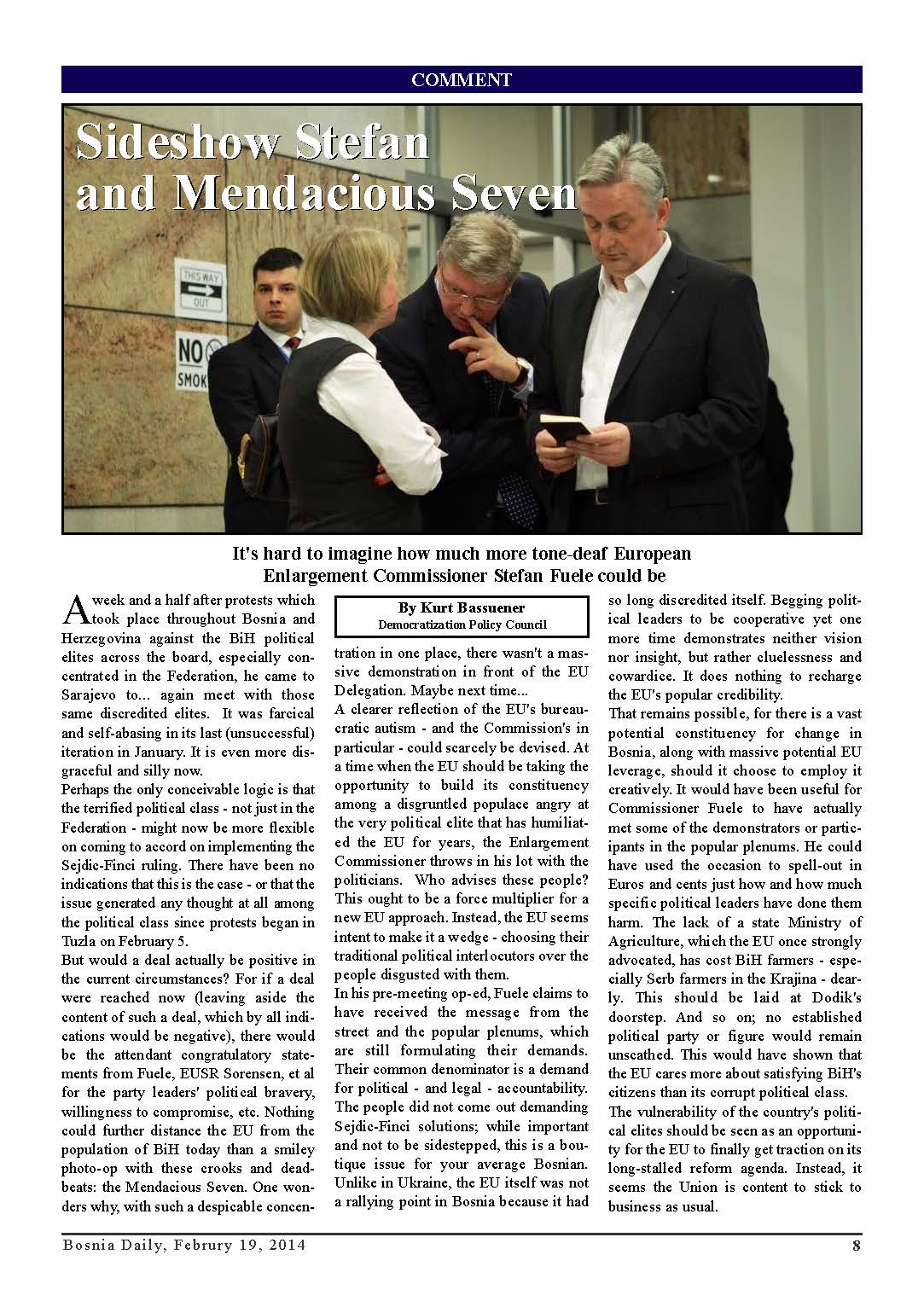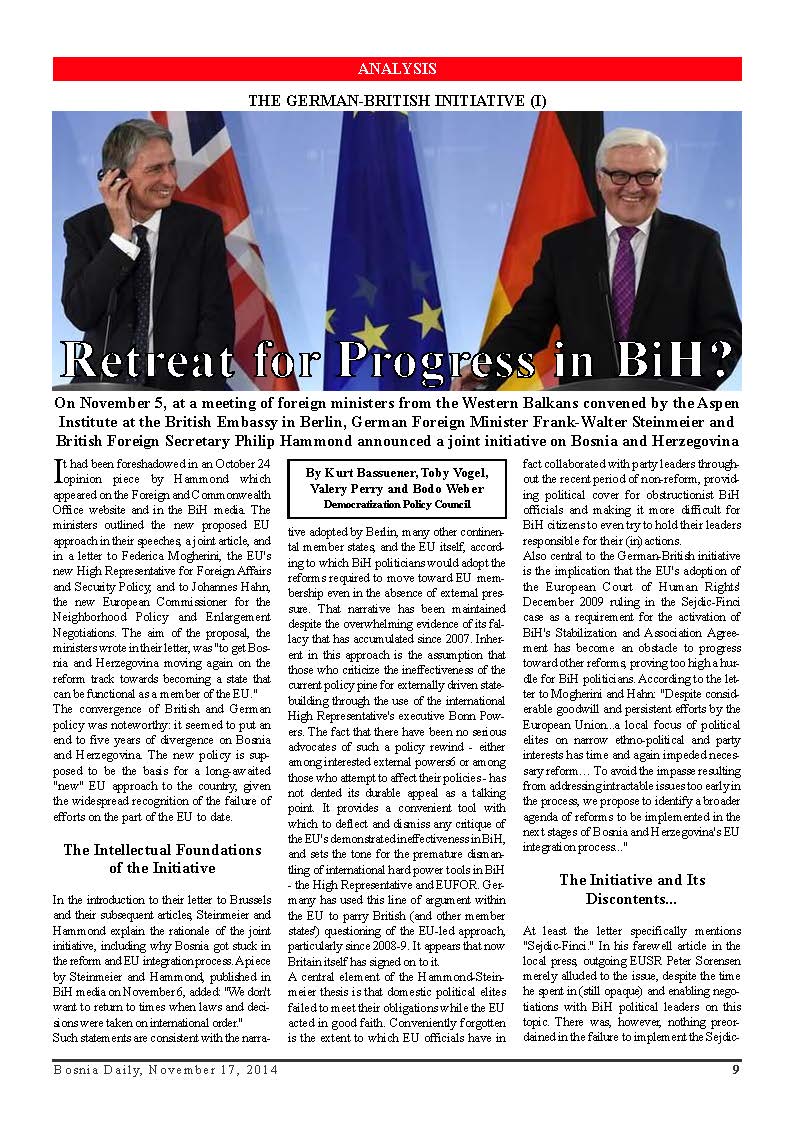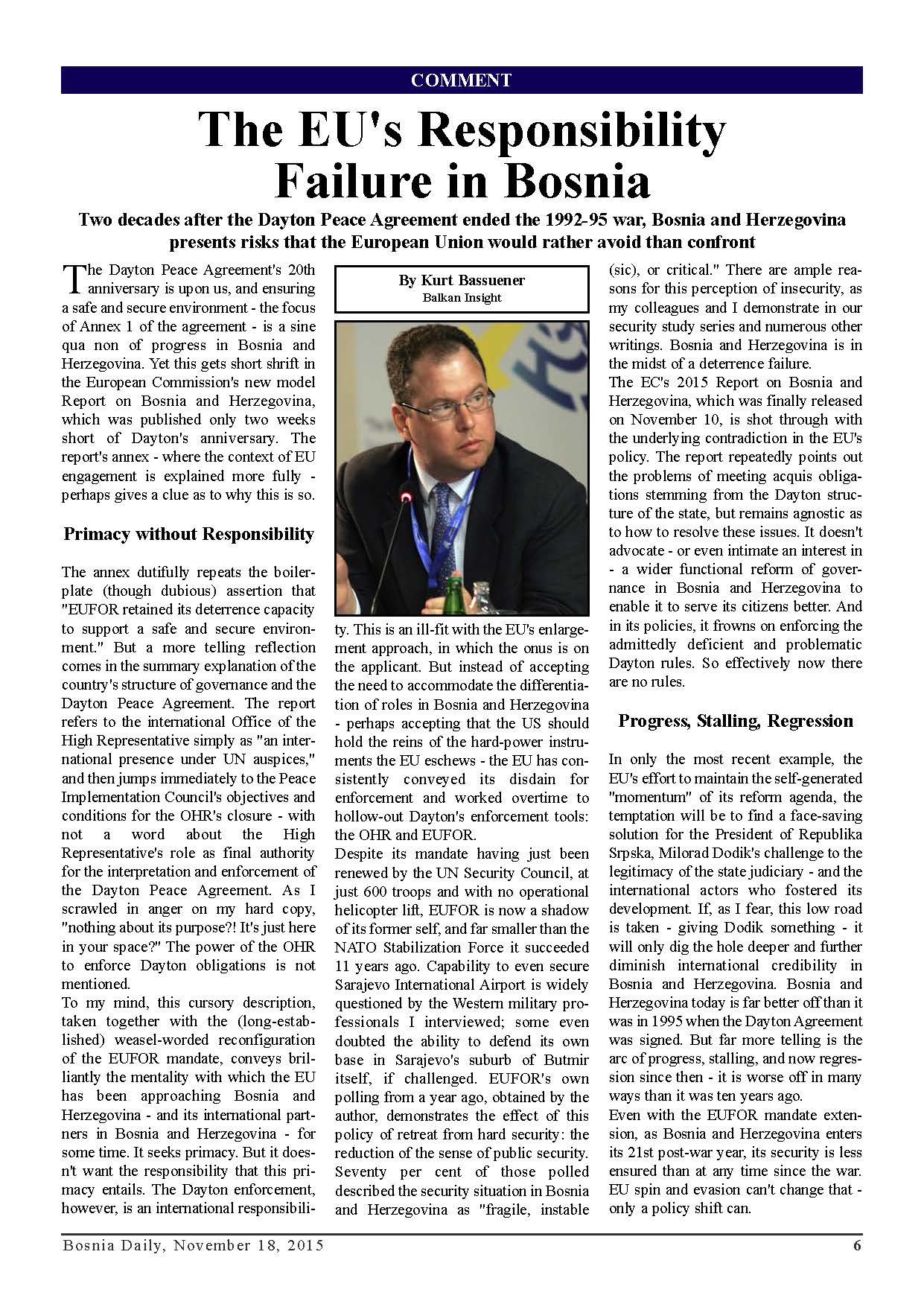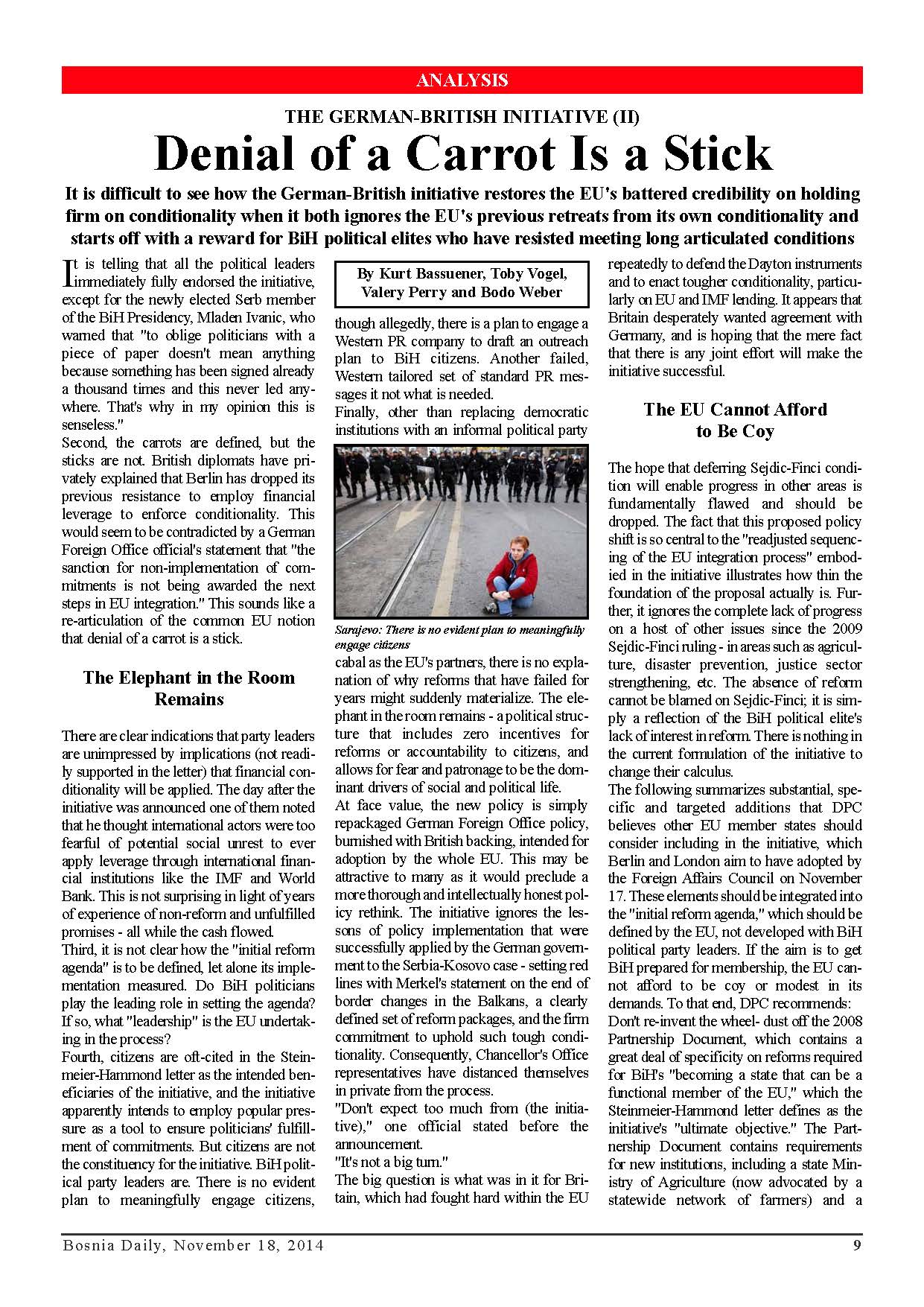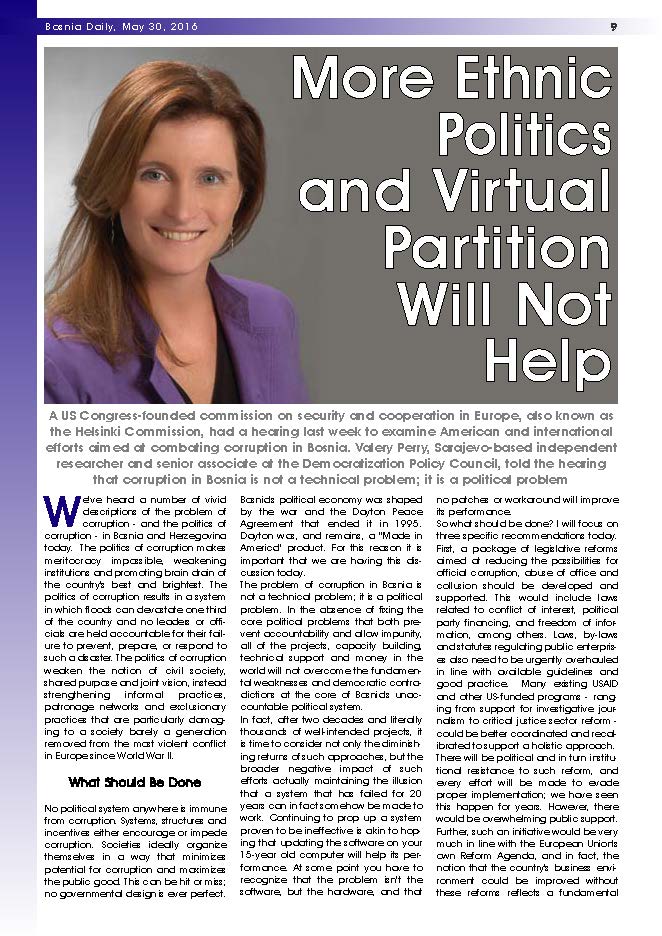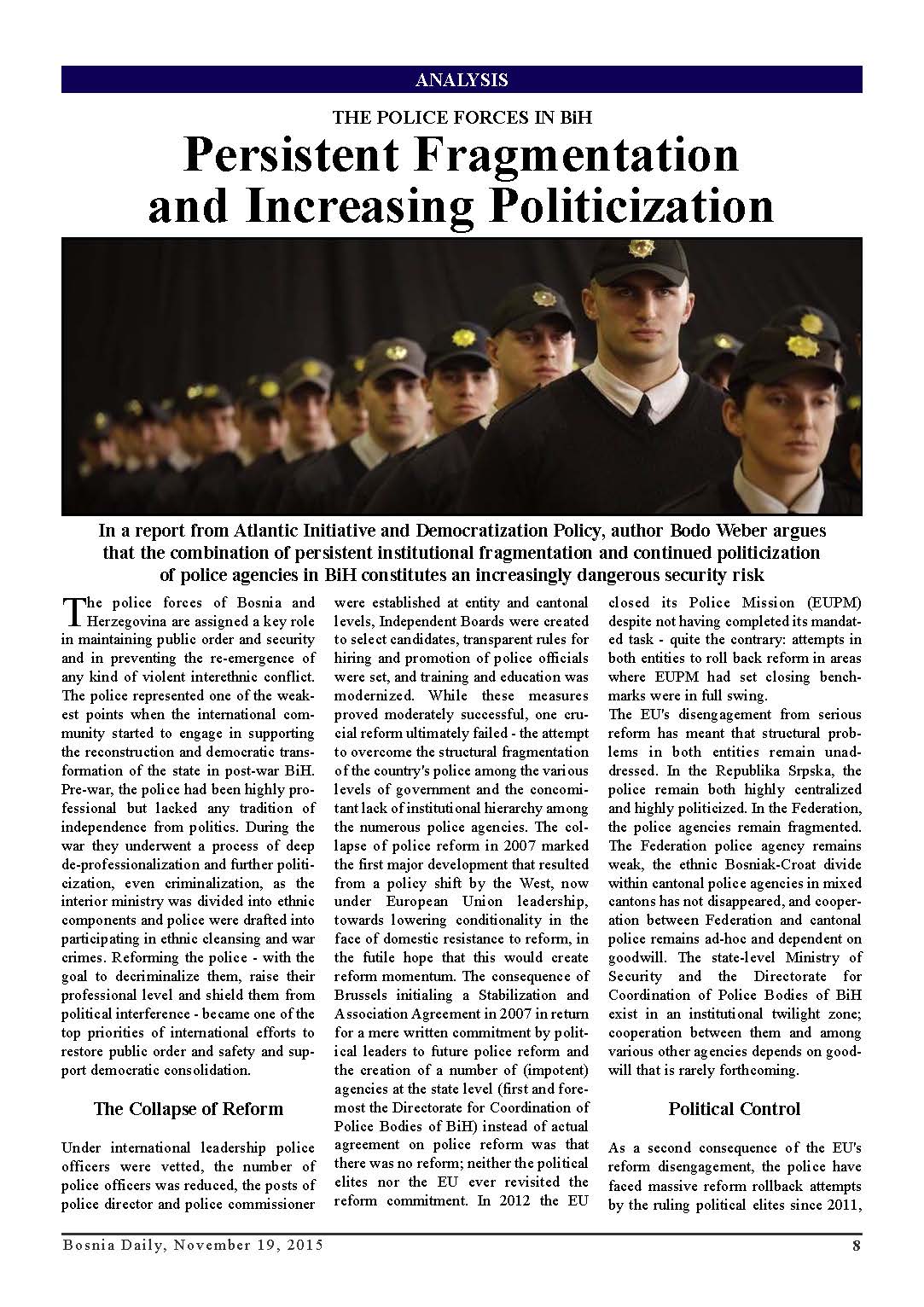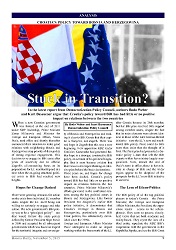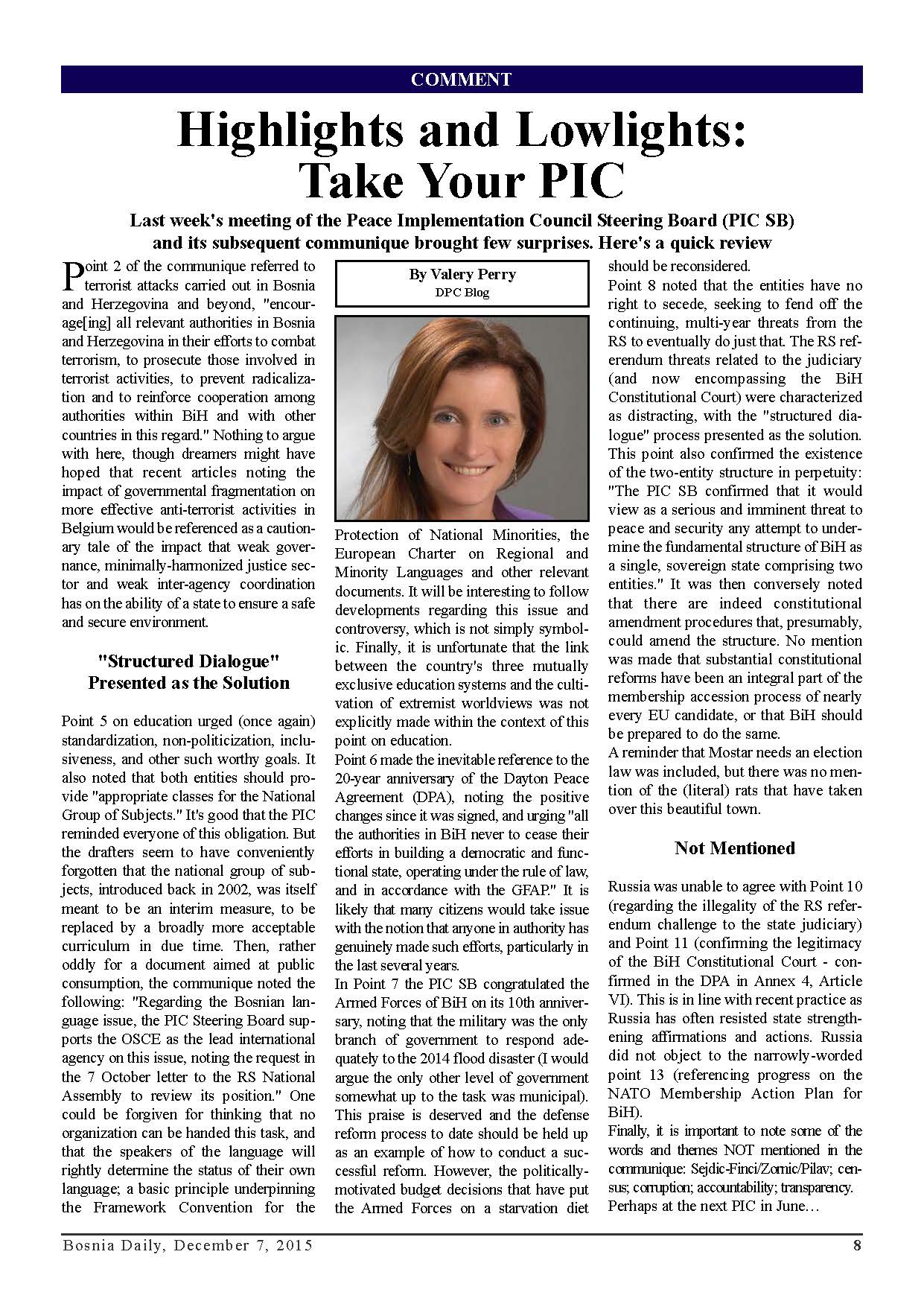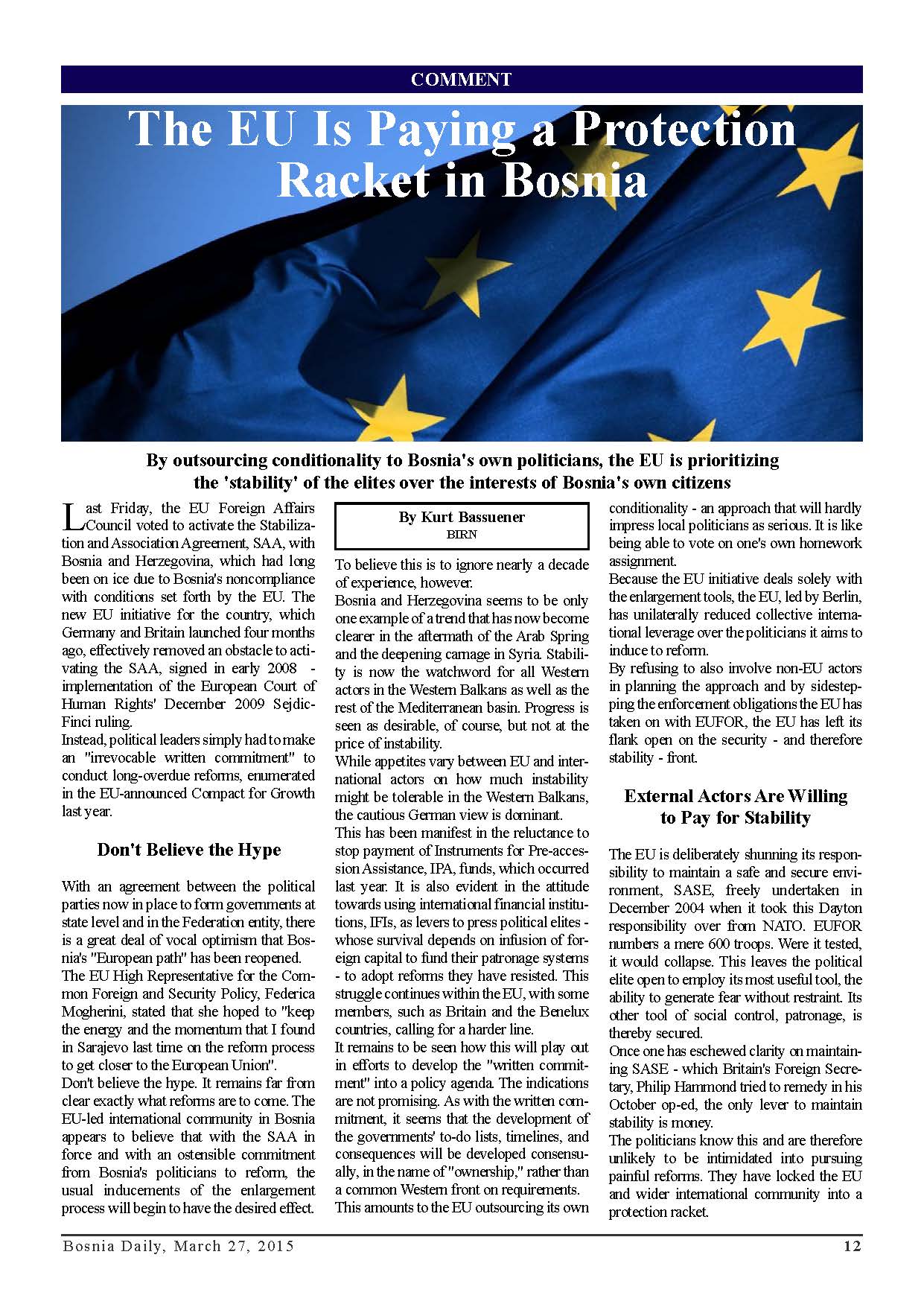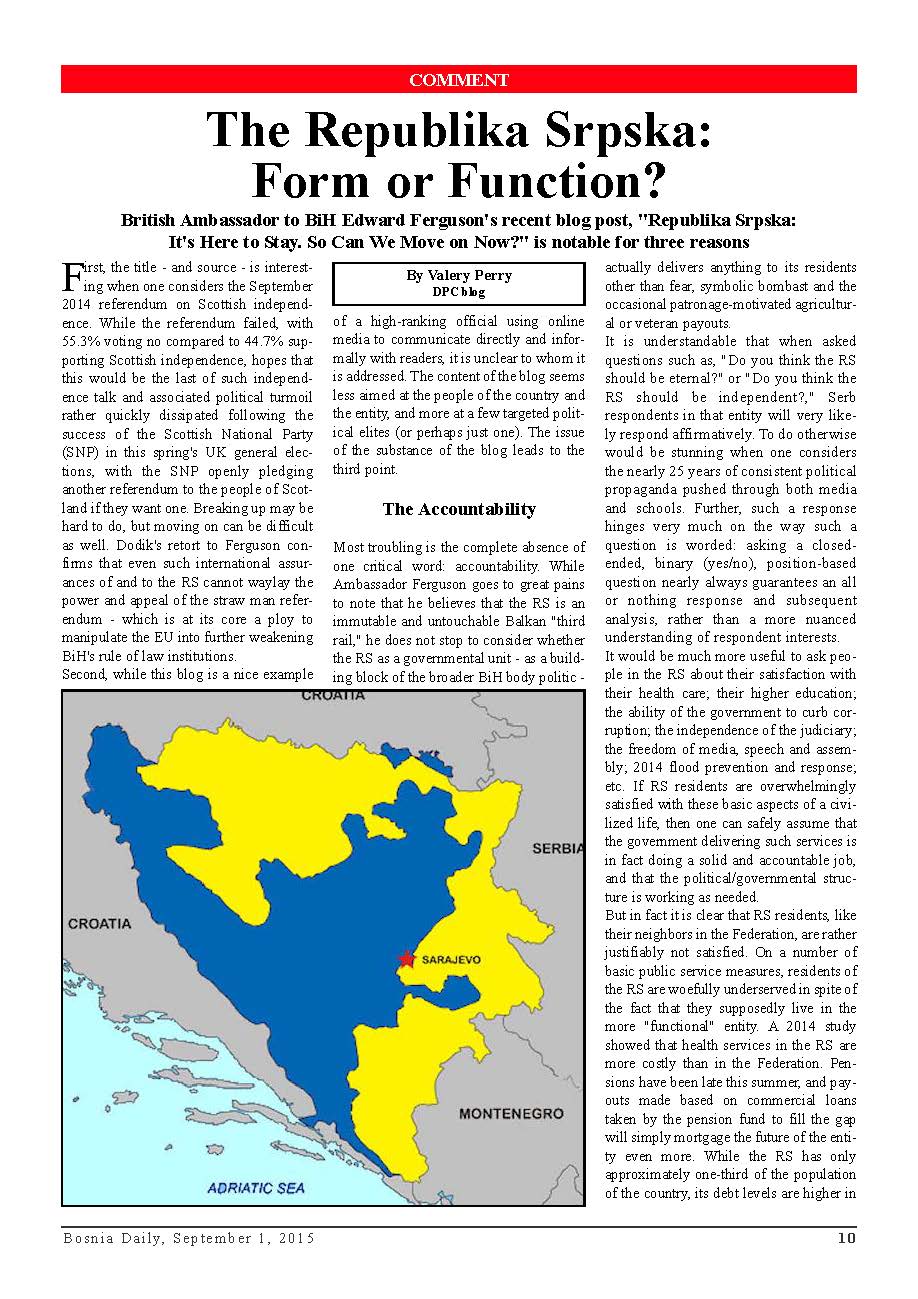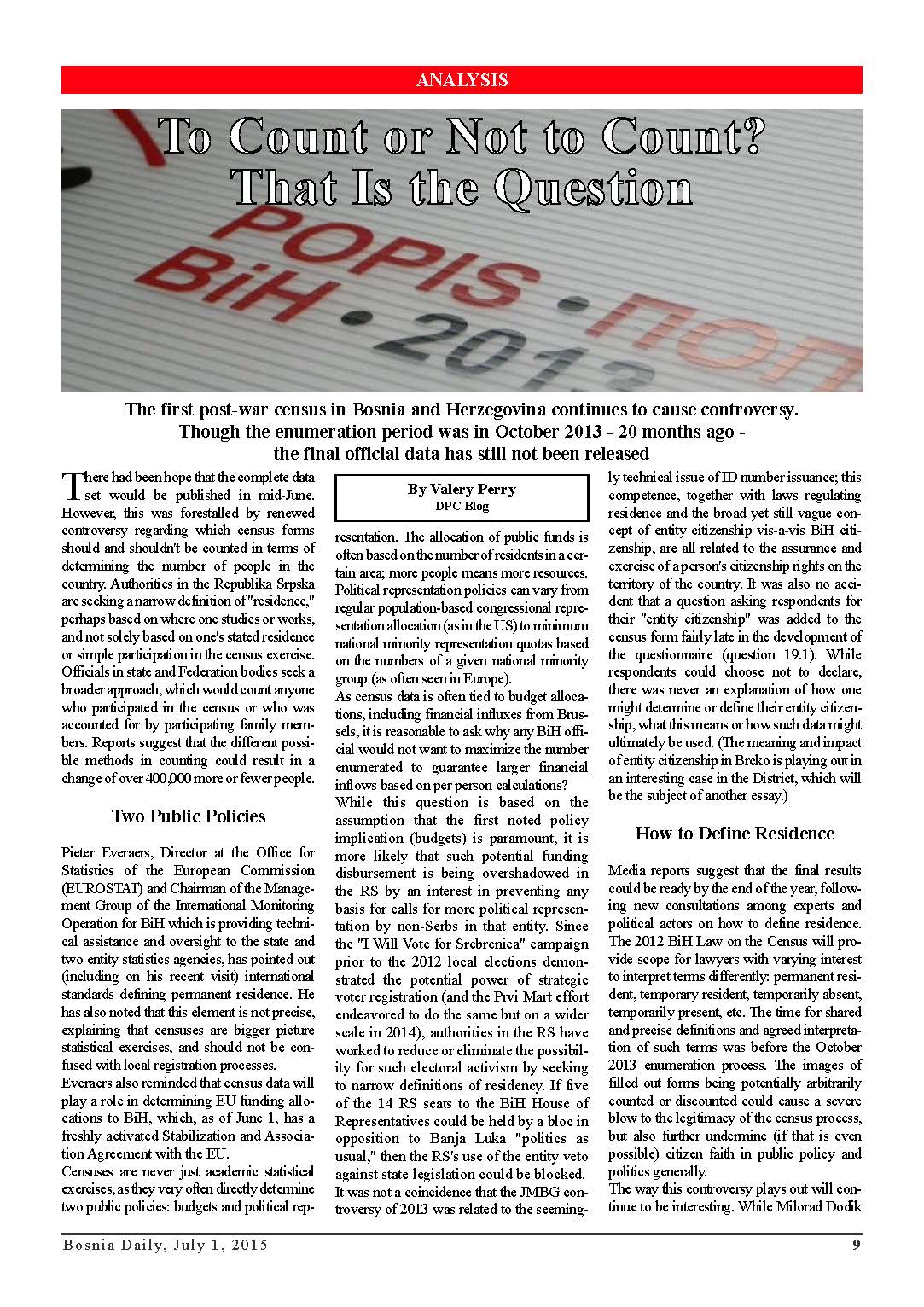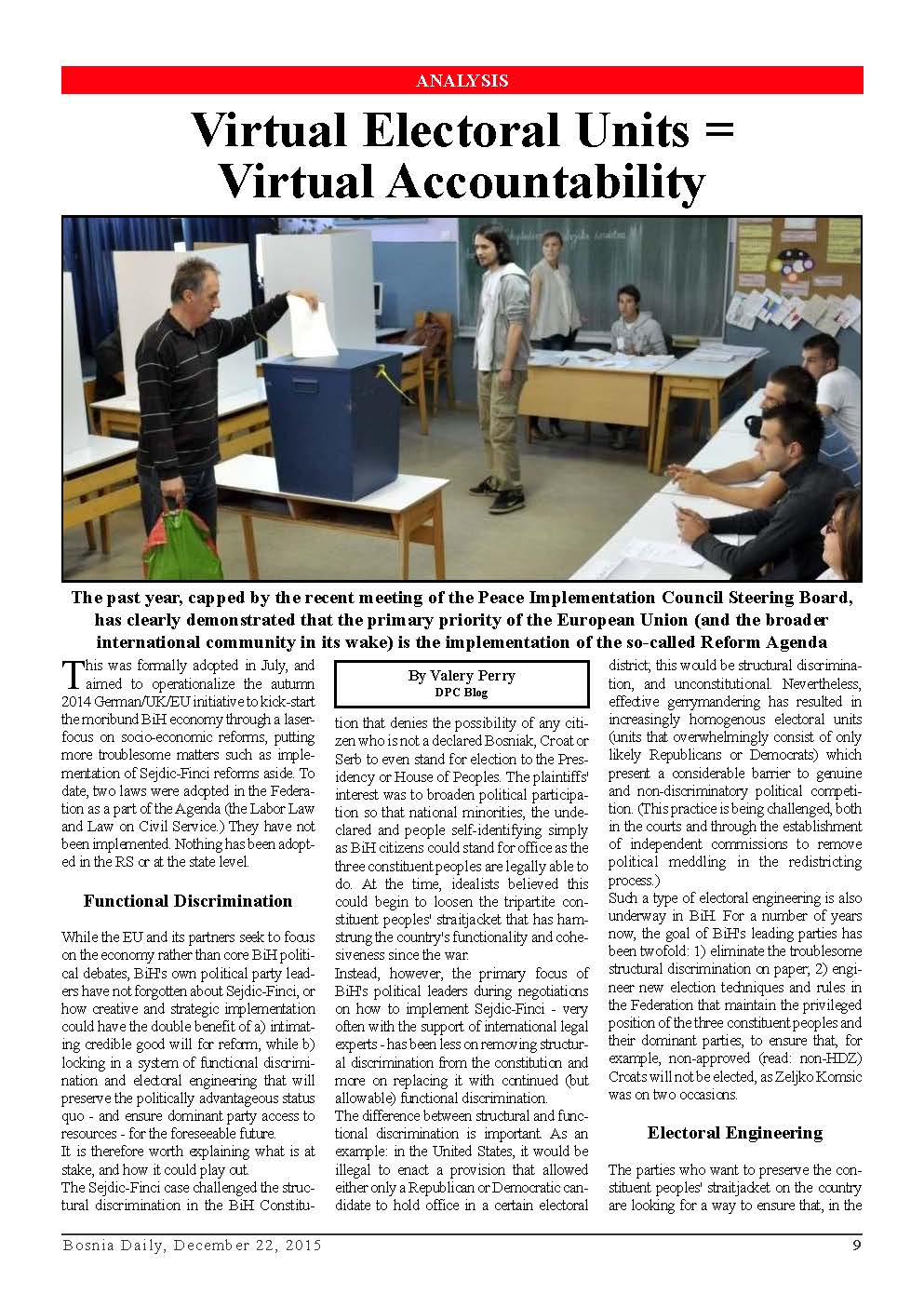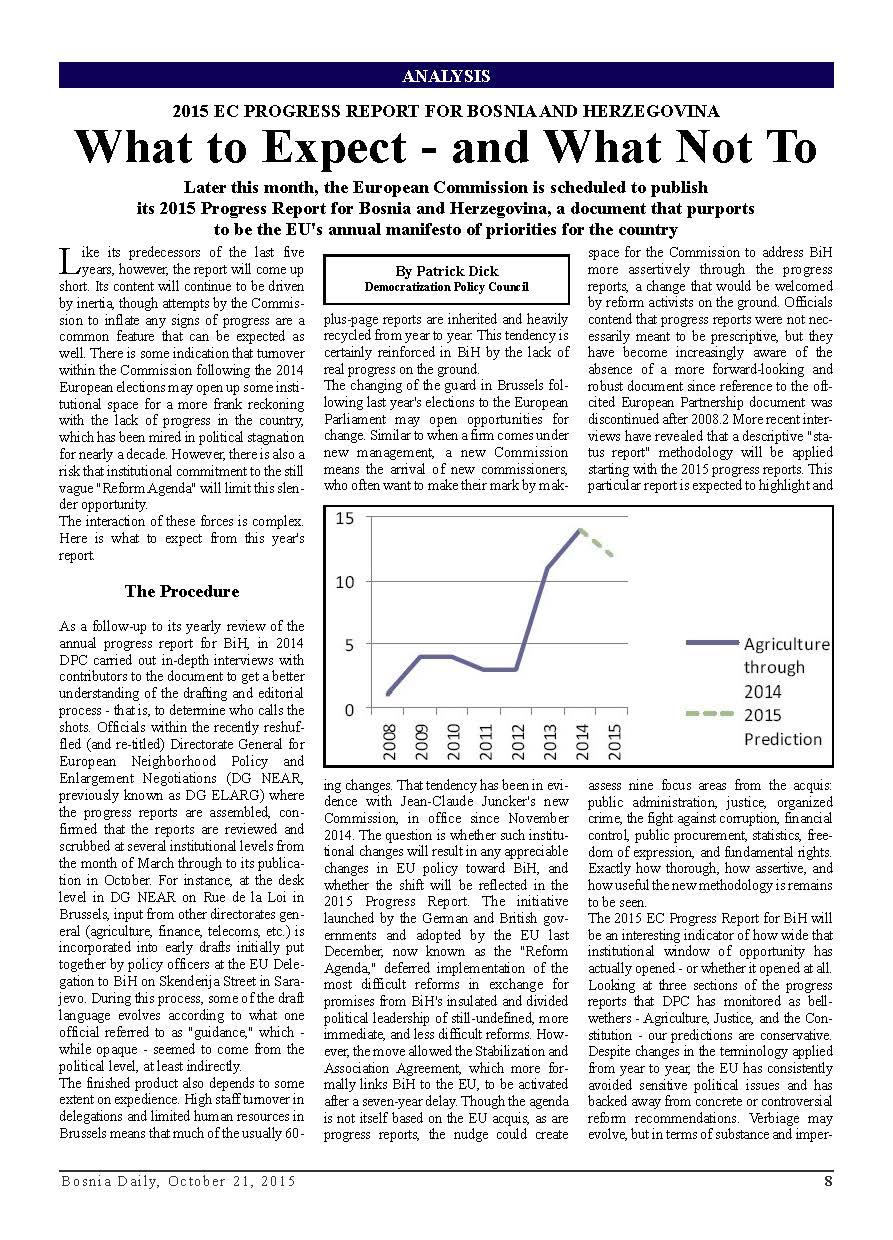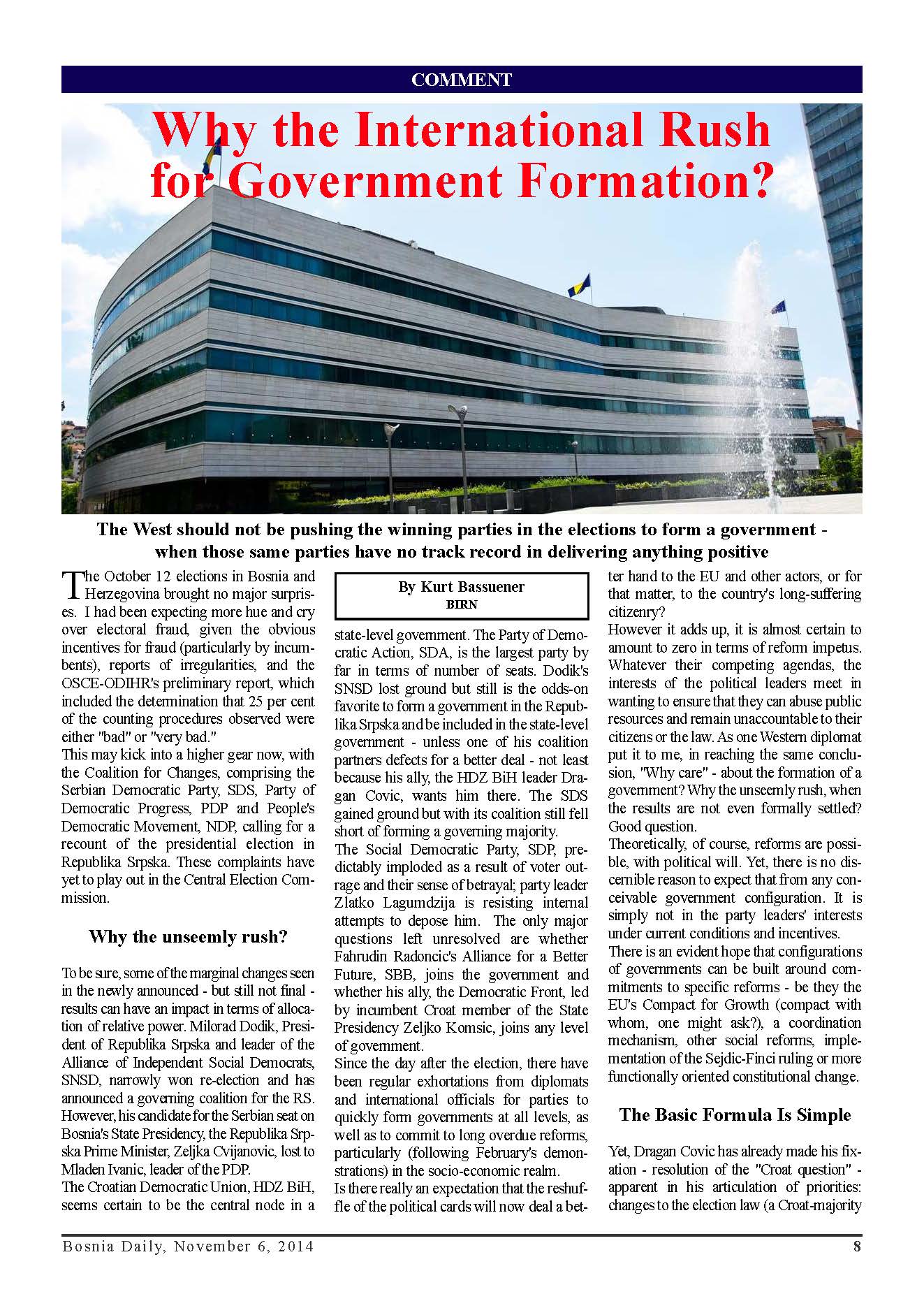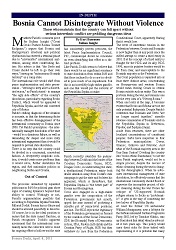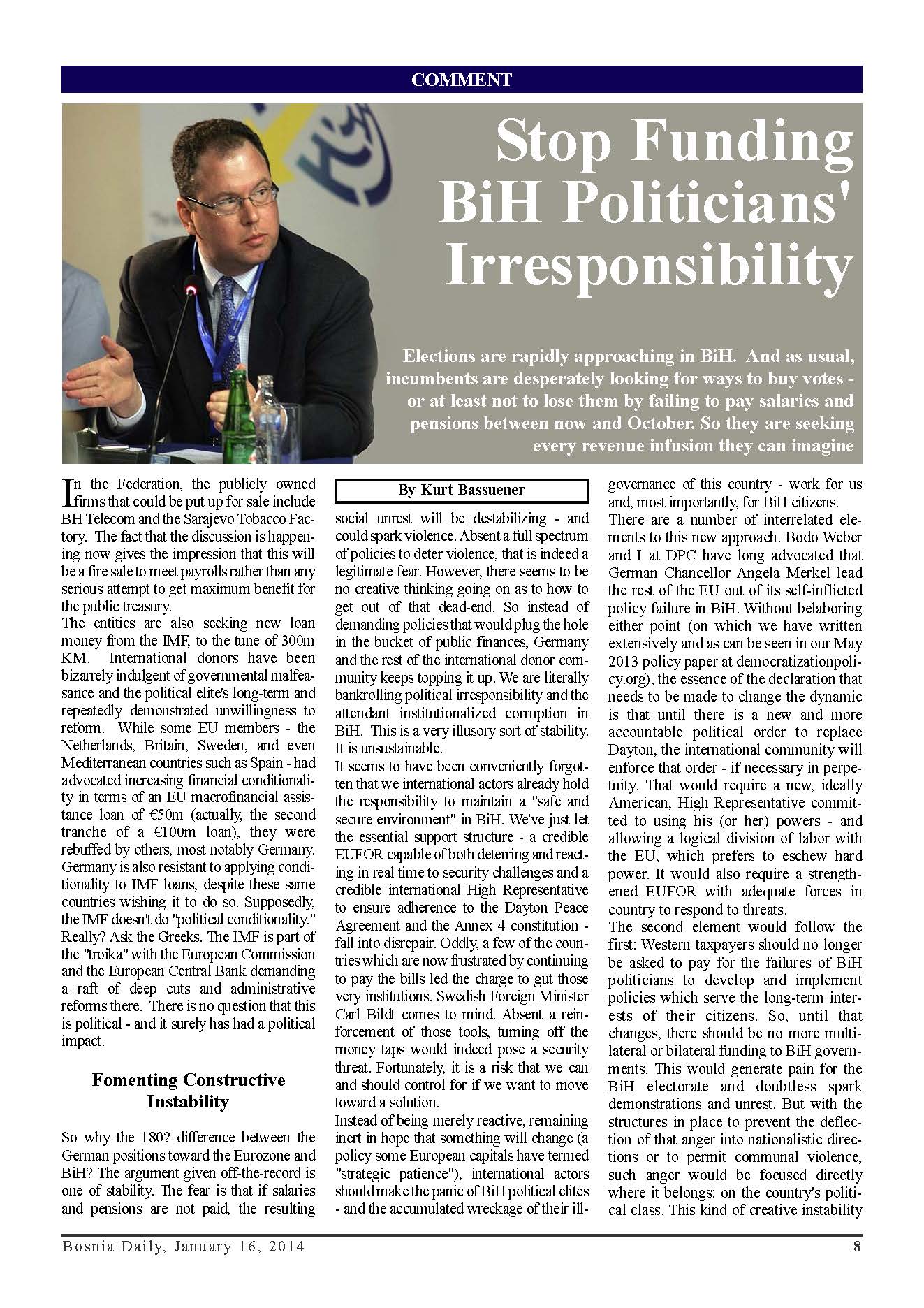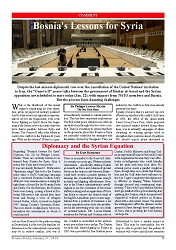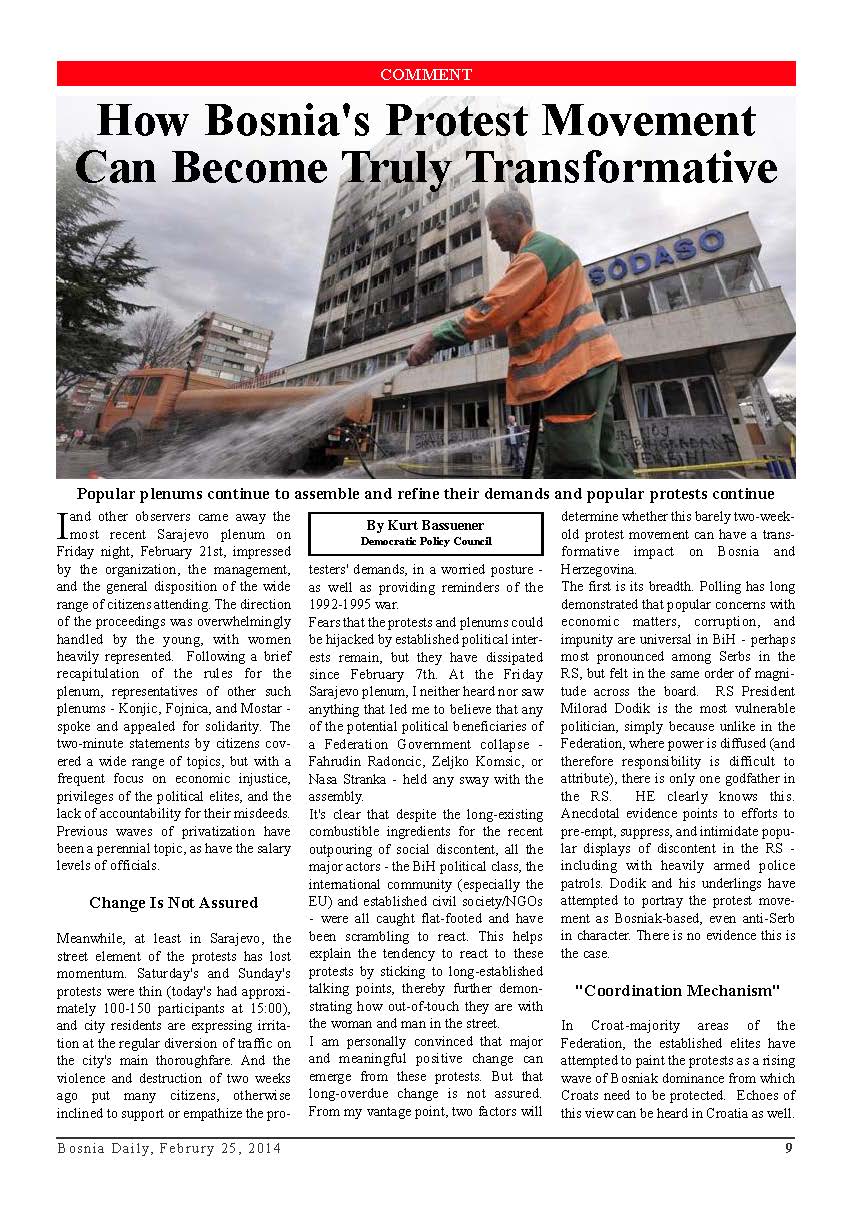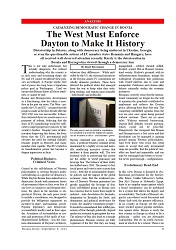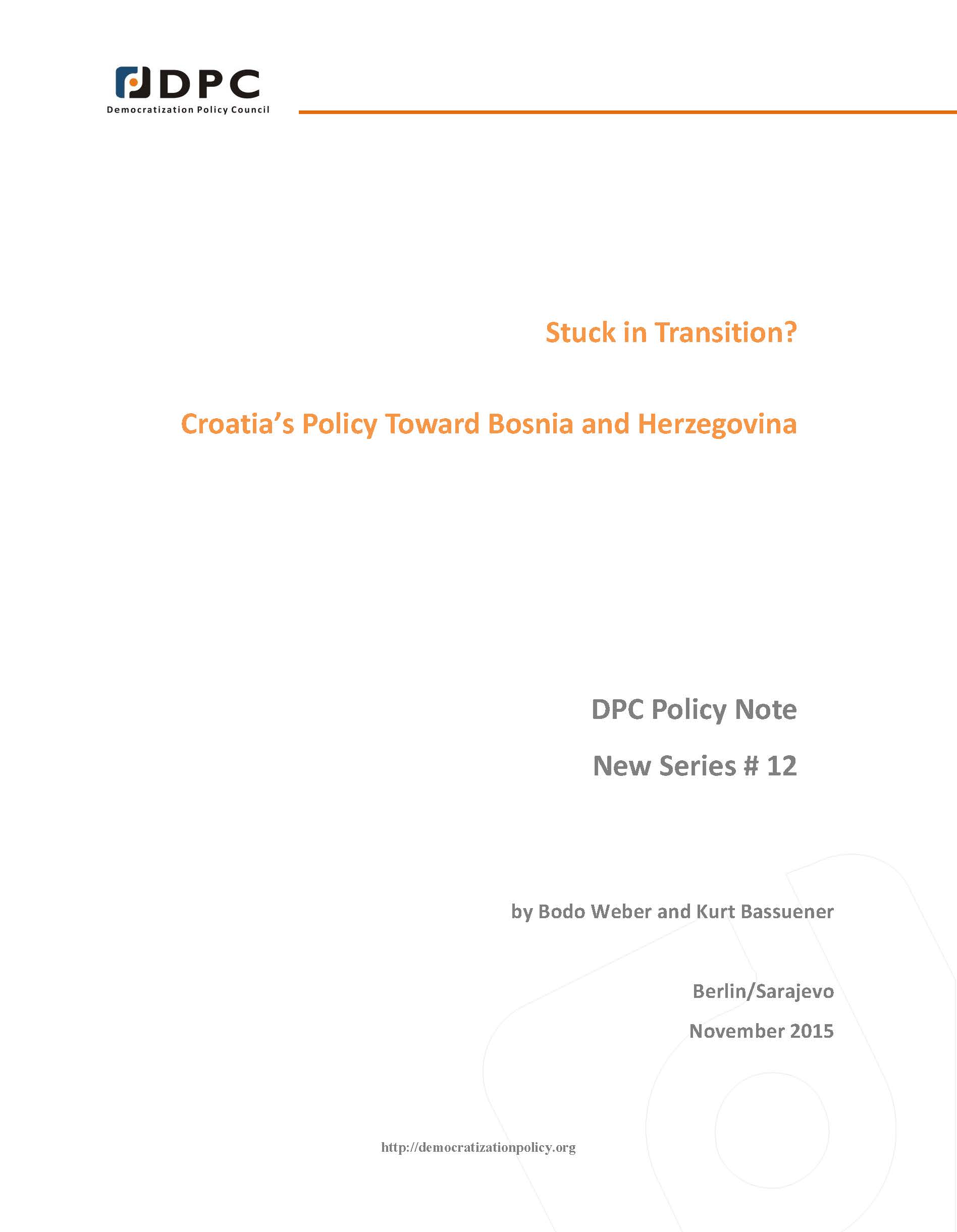
DPC POLICY NOTE 12: Stuck in Transition? Croatia’s Policy Toward Bosnia and Herzegovina.
DPC POLICY NOTE 12: Stuck in Transition? Croatia’s Policy Toward Bosnia and Herzegovina.
Keywords: BiH; Croatia; transition; policy; Zoran Milanović; Vesna Pusić; SDP; Stipe Mesić; EU; Croats; HDZ; Tomislav Karamarko; Ivo Josipović; reconciliation policy; government; national interests; Western Balkans;
When a new Croatian government was formed at the end of 2011 under SDP leadership, Prime Minister Zoran Milanović and Minister for Foreign and European Affairs, Vesna Pusić, took office and shortly thereafter announced their intention to make good relations with neighboring Bosnia and Herzegovina (BiH) a top priority of their policy of strong regional engagement. This decision to re-engage in BiH came after years of inactivity due to official Zagreb’s all-consuming focus on its preparations for EU membership and at a time when the on-going structural political crisis in BiH had reached new heights. There were growing demands for action on the crisis from individual EU member states despite the EU itself being not willing to seriously re-engage and take action. The new government’s BiH policy was to be a “principled policy” – one that would follow the state policy defined by former President Stipe Mesić in 2000 and accepted by all subsequent governments which was based on respect for the territorial integrity and sovereignty of Bosnia and Herzegovina and making it clear to BiH Croats that their capital is Sarajevo, not Zagreb. There was real hope in Zagreb that this was a new beginning. New opposition HDZ leader Tomislav Karamarko had generated further hope in a stronger, constructive BiH policy, on account of his political biography. But it soon became evident that there was no developed thinking or cohesive plan behind the basic declarations. Three years on, and hopes for change have been dashed. Croatia’s policy toward BiH has had little or no positive impact on relations between the two countries. Prime Minister Milanović’s efforts got mired in the conflictual relations among the key political actors in Bosnia and Herzegovina. Like former President Ivo Josipović’s earlier BiH policy initiative, it demonstrates that Croatia’s leverage in Bosnia and Herzegovina, particularly over BiH Croat politics, has substantially diminished since the 1990s. Foreign and European Affairs Minister Pusić attempted to make an impact working within the framework of the EU after Croatia became its 28th member, but her BiH plan received little support among member states, despite the fact that its main elements were almost identical to those of the later German-British initiative – now the EU’s new and much-touted BiH policy. Pusić could do little more than insist that she thought of it first. The Pusić plan had presented a dramatic policy U-turn that left the BiH experts within her ministry largely marginalized. Now, toward the end of Pusić’s term in office, those in her ministry in charge of BiH and the wider region appear to be skeptical of the prospects for the EU’s new BiH initiative to succeed. The BiH policy of all the top political players in today’s Croatia – the Prime Minister, the Foreign and European Affairs Minister, the President, the opposition leader – seems to be schizophrenic. They seem to possess closely-held views that are both moderate and reality-based. They reject the idea of a third entity, repudiate the HDZ BiH’s cooperation with the government in the Republika Srpska, and see the BiH Croat political leadership, along with the country’s entire political elite, as corrupt and part of the problem - not a part of the solution. Yet these views hardly ever translate into public performance or policy. Instead, the government, president, and opposition repeatedly allow themselves to get drawn into paying public tribute to Croatia’s 1990s policy legacy on BiH, which views the country solely through the lens of ethno-politics. While this conduct is considerably less invasive than it was under Croatian BiH policy in the 1990s, it nevertheless prevents Croatia from completely breaking with the past and setting aside the war legacy – which could now be done at a very low political price due to the current general disinterest of Croatian citizens regarding BiH. As a consequence, Croatia’s already limited potential impact as an honest broker on Bosnia and Herzegovina both in its direct relations with BiH and within the EU framework is further reduced. In Brussels, for example, Croatia’s MEPs are more vocal, but they are less respected than those of other new member states. Another policy remnant of the recent past is the constitutional right granted to BiH Croats with dual citizenship to vote in Croatian elections. The practice of this right undermines the sovereignty and democratic development of both Croatia and Bosnia and Herzegovina.
More...
